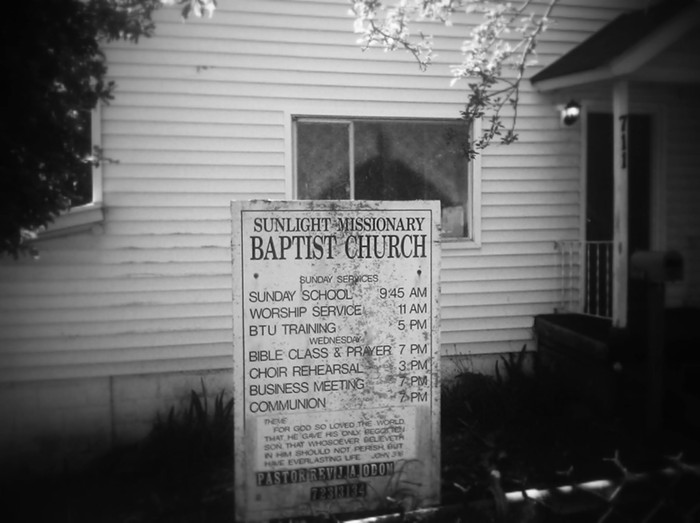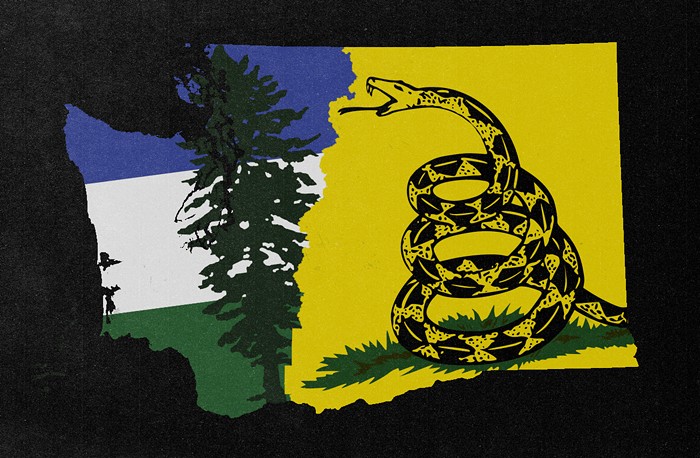Steven posted a Q&A with Nikkita Oliver last week that covered a lot of ground. (Read it here.) Oliver spent a lot of time talking/grousing about endorsements. Oliver and the Peoples Party isn't that into them:
We maybe won't endorse at all in this election. That said, I think those who voted for us are incredibly intelligent, and we're about voter education. How do you help voters who look beyond endorsements as a way of determining which candidate is the best candidate? And if we're really honest with ourselves, the system of endorsements is incredibly flawed. You submit a written questionnaire. In some instances, you write what you might do and then people give you an endorsement based on what they think you might do without a mechanism of accountability. There is nothing in place to hold any elected official accountable after they get in office. It's really just based upon their integrity. We want to push beyond this system of endorsements that has, in some ways, made it so voters don't have to do some of that digging, and we want to help our communities who have already faced many systemic barriers to voting.
An accountability mechanism already exists: the next election. It's not a perfect mechanism, of course, because incumbency has its advantages, e.g. increased name recognition, it's easier raise funds, the formal trappings of the office, etc., and those advantages can be leveraged against efforts by activists and communities to hold a politician to account. But, again, anyone who wins a seat on the city council or becomes mayor or has to face the voters again. That's how we hold politicians accountable after they get in office. [UPDATE: We also can and also should scream and yell and make the lives of shitty politicians hell between elections.]
More from Oliver on endorsements:
Where we're at at the moment is, we don't intend to endorse. We intend to provide opportunities for the community to engage candidates, ask them hard questions. Similar to how we have live-streamed everything, we'll also live-stream that. Make sure accessibility is there, work with the communities we did community listening posts with. If they want to meet with certain candidates, help facilitate that.
Some voters don't have time to "look past endorsements," if by "looking past" you mean "coming to meetings, doing your own research, finding time to watch hours of live-streamed interviews and forums, and conducting your own interviews with candidates."
Oliver and the Peoples Party's proposed approach—creating "opportunities for the community to engage candidates" rather than making endorsements (or, better yet, doing both)—would raise a barrier to voting. Most voters simply don't have the time to show up at numerous "listening posts," watch recordings of meetings, ask their own questions, do their own digging, etc. There's a reason wealthier, whiter, and older voters dominate political forums and public testimony: because they can afford to take the time off or have the power to get the time off. Telling voters from marginalized, struggling communities to disregard endorsements and do their own research could result in fewer of these voters actually voting.
The "system of endorsements," such as it is, lowers one significant barrier to voting: opening your ballot, seeing seeing a long list of names you don't recognize, and then tossing your ballot in the recycling bin. Endorsements provide useful/actionable/empowering info to voters who don't have the time to do all the digging for themselves. It's not a perfect system; no system is perfect. But voters—particularly poor voters, young voters, working class voters—have busy lives, more than one job, kids to look after, etc. King County Democrats, The Urbanist, The Seattle Medium, the Sierra Club, Seattle Bike Blog, The C Is For Crank, the Stranger Election Control Board, and the Seattle Times: voters gravitate toward organizations and publications whose judgment they've come to trust—and whose politics roughly align with their own—and rely on those orgs and pubs to do the digging/interviewing/research for them and then issue endorsements. We like to joke that SECB endorsements are legally binding but, sadly, that isn't the case. Just like members of the SECB, readers are free to disregard the majority opinion of the SECB and make up their own minds. But providing endorsements and the thinking that went into them is helpful, it's a public service, and it's one that empowers busy voters. (The Stranger's 2017 primary endorsements were read by 126,767 folks; our cheat sheet was downloaded by 22,980 readers.)
There weren't that many candidates on the ballot in the primary we just had; port, city council, mayor, a couple of others. But we burned through countless staff hours scheduling meetings, interviewing candidates, researching records, debating who we would endorse, settling on a choice, and writing dissents. In an even-numbered year (2018, 2020), with state and federal races on the ballot, the workload is crushing. (In the 2016 general election, 342,778 folks read our endorsements; 67,691 downloaded our cheat sheet.) Telling individual voters to ignore endorsements and get out there and do the work for themselves—telling them to be their very own SECB or Sierra Club or Erica C. Barnett—isn't a politically empowering stance. It's a guilt trip with the distinct whiff of sour grapes about it.
And speaking of Oliver's recent comments to the media, there was this from a recent appearance on KUOW...
"We're in the same position, in some ways, that we were in this last national election," Oliver said later in the interview, "where one candidate clearly does not serve the interests of the most impacted and the other doesn't necessarily have the most thorough analysis around what that looks like. And, as a person who's impacted, I am faced with choosing the better of the two."
Jenny Durkan is not Donald Trump, Cary Moon is not Hillary Clinton, and Nikkita Oliver is not Bernie Sanders—except in the "couldn't win the primary" sense.














